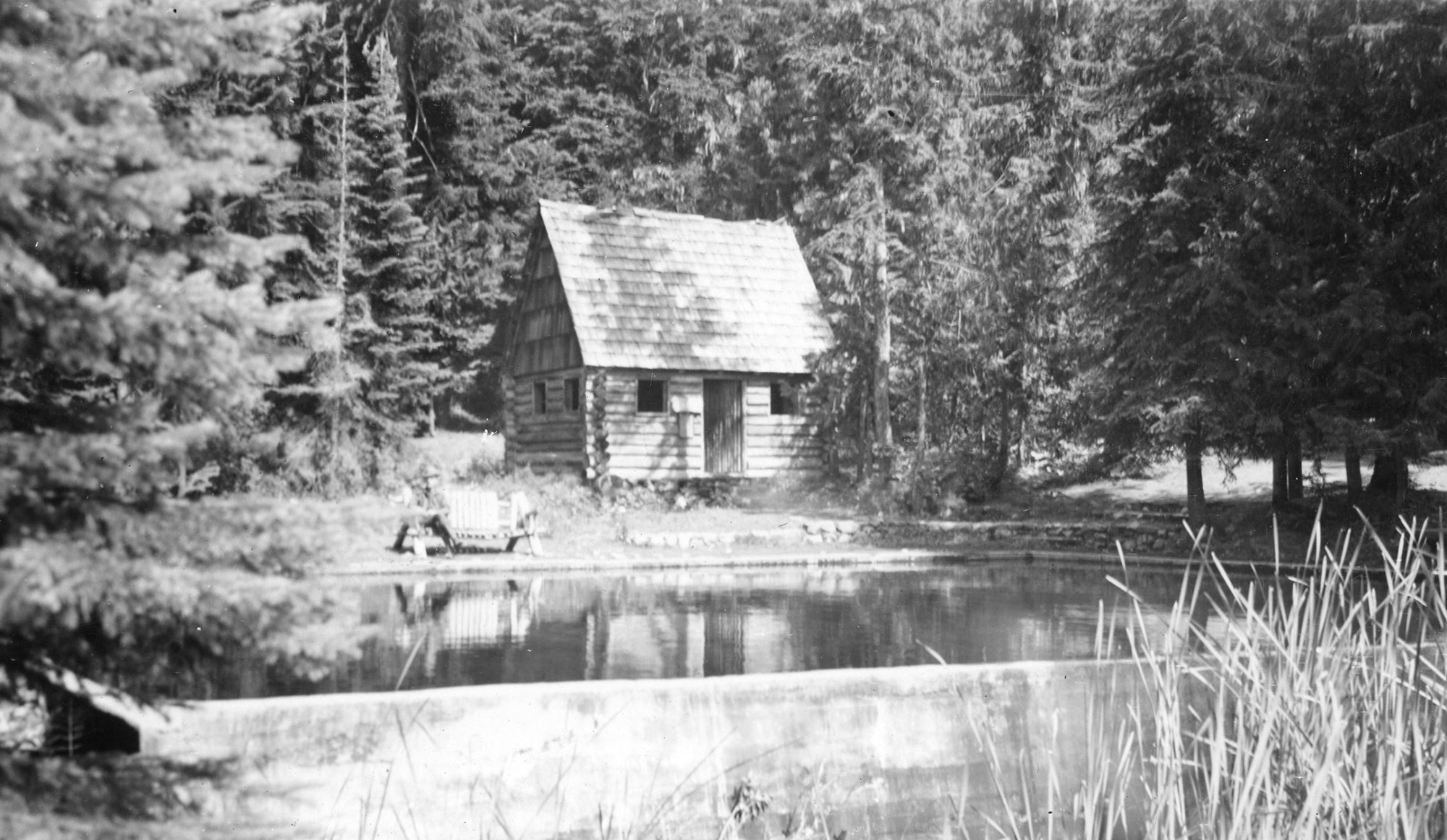Silcox Hut was built on the south side of Mt. Hood in 1939. Sitting at 6,950′ it is nearly 1,000 feet higher than Timberline Lodge, which opened to the public in 1938. Many of the WPA craftsmen who worked on Timberline Lodge also helped build Silcox Hut, which cost $58,000 to built.
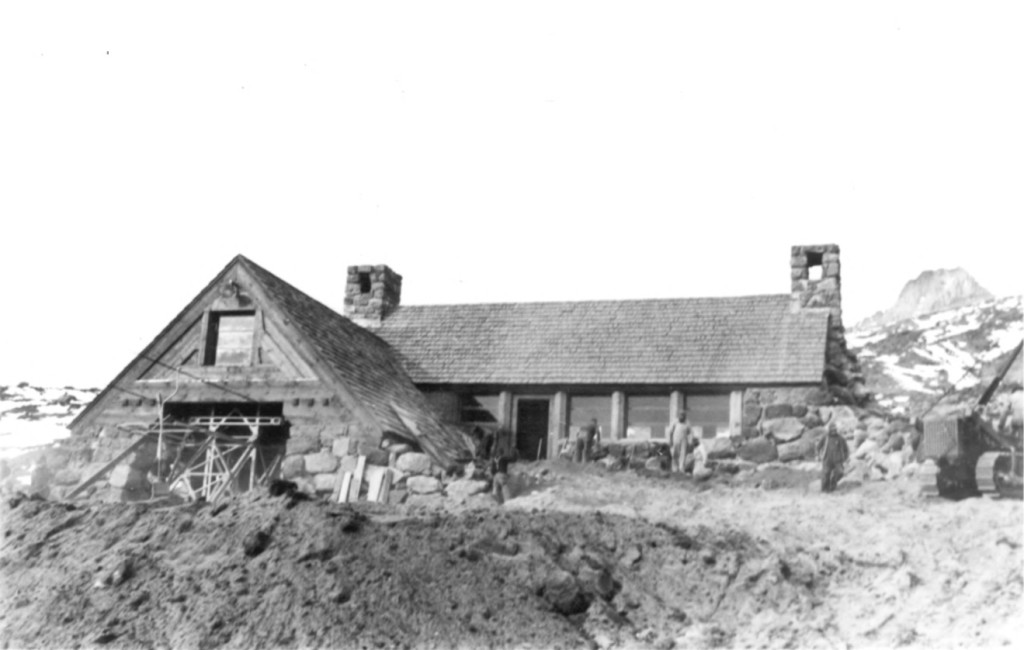
Silcox Hut under construction in 1939 (Oregon State Historic Preservation Office)
It was built in a non-intrusive style and was sunk into the mountainside to accomplish this. It was constructed from heavy timbers and native rock with walls four feet thick at the base and two feet thick where they join the roof. The building is shaped like an “L” and at its widest point is 60 feet long and 27 feet wide. The two chimneys are made from local stone. The hut was named after Ferdinand A. Silcox who was chief forester at the time that Timberline Lodge was being proposed and was a strong advocate for the project.

Chief Forester Ferdinand Silcox (Forest History Society)
Silcox Hut served as the upper terminus of the Magic Mile chairlift, which was the second such lift ever built in the United States and the first to use steel towers. According to the National Register of Historic Places nomination form:
The lift began 200 yards east of Timberline Lodge, rose 996.5 feet in elevation over a 207° slope and ended 4,950 feet up the mountain at Silcox Hut. The lift had a capacity of 255 people per hour and moved at a rate of 450 feet per minute…To prevent skiers from falling out, each chair was supplied with a seat belt and blankets were provided to ward off the cold.
On May 21, 1939 Crown Prince Olav and Princess Martha of Norway secured the first tower with a nut and bolt in a pre-dedication ceremony. Oregon’s notoriously fickle spring weather made for a wet ceremony as described in the Oregonian the next day.
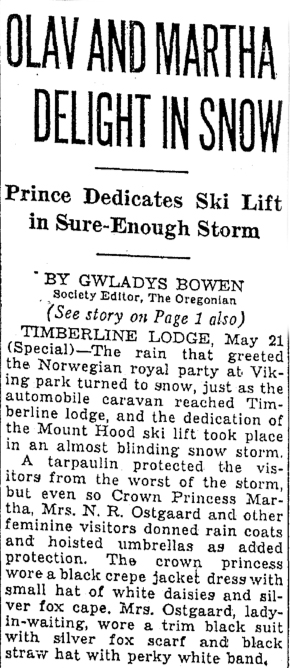
The lift began operating on November 26, 1939 even though Silcox Hut was still two weeks from completion. When the hut did open it had a concession counter for the convenience of skiers.
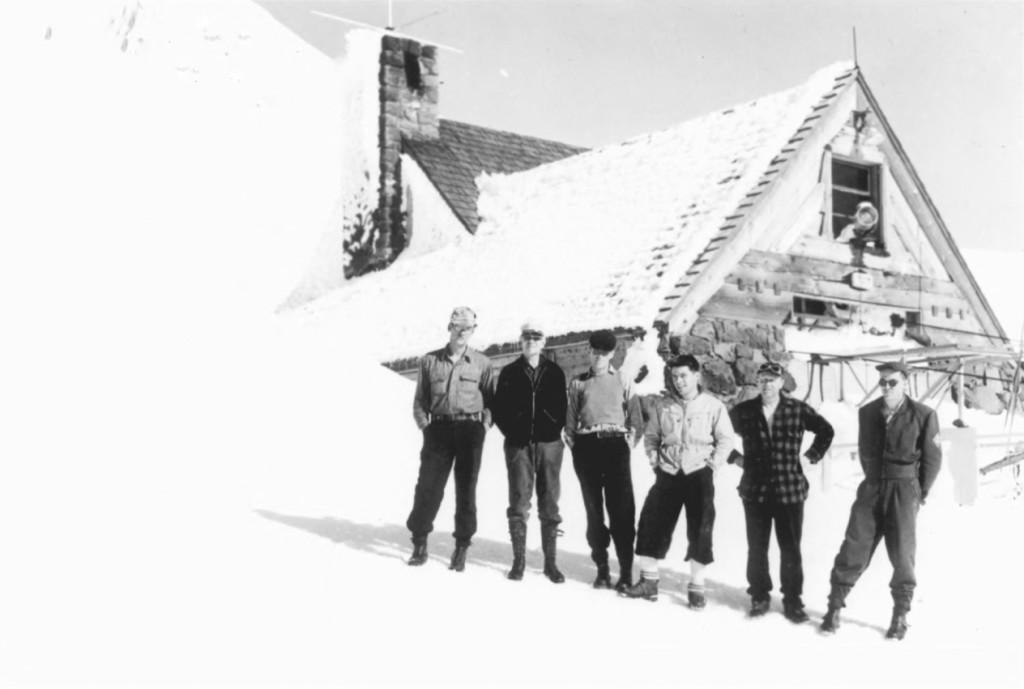
Silcox Hut in 1939 (Oregon State Historic Preservation Office)
The lift operated in summer too, offering sunset rides with amazing views that a June 27, 1940 Oregonian article called “the finest in the west”.
The Magic Mile chairlift was moved in 1962 and Silcox Hut was left abandoned. Time, harsh weather, and especially vandals took their toll over the years. In a July 12, 1981 Oregonian article, Forest Service administrator Dick Hoffman said:
Climbers have torn down every stick of wood they could reach for firewood. We have restored the shakes (on the roof) twice, but it is a losing battle. We tried locking up the lounge area, leaving the bull wheel room open to provide emergency shelter for climbers. But someone managed to hack his way through a 3-inch wooden door and broke into the lounge wing. We barricaded the other doors and covered the windows with welded steel shutters, but vandals used bed frames to pry them off.
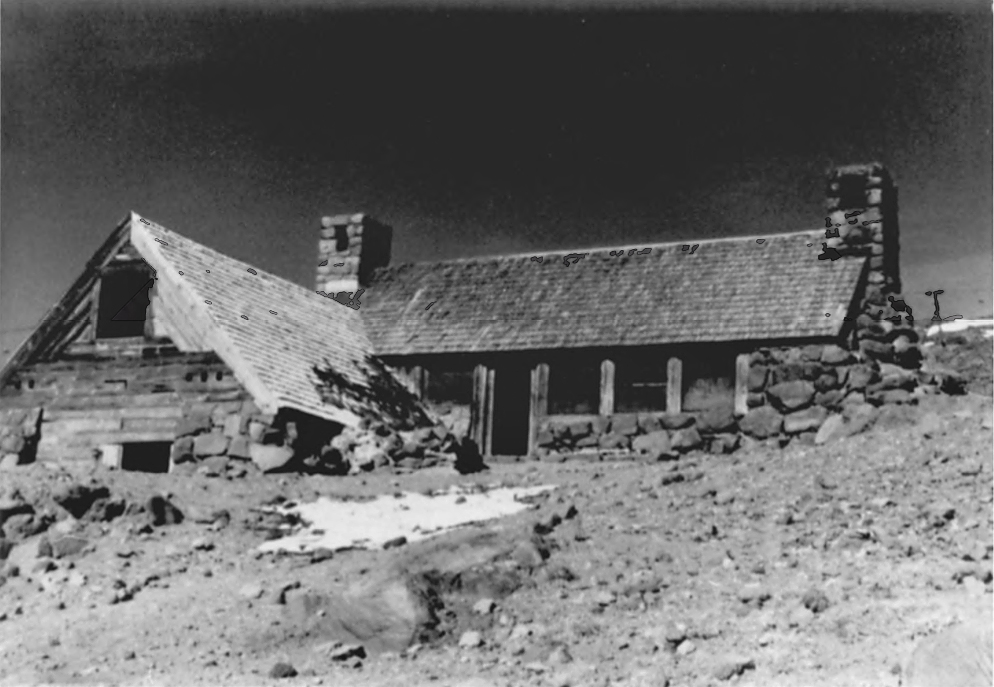
Silcox Hut in 1983 with roof damage (Oregon State Historic Preservation Office)
The hut was in bad shape and the Forest Service considered demolishing it. But it was listed on the National Register of Historic Places in 1984 and then Nancy Randall, a Portland attorney, founded the Friends of Silcox Hut and restoration efforts began. Hundreds of volunteers donated their time. Electrical outlets were installed without altering the stonework. Graffiti was planed out of the bar, which was made from a slab of 500-year-old Douglas-fir.
Finally in 1993 the restored hut reopened. Today Silcox Hut is run by Timberline Lodge and is available to rent for weddings and retreats. Strong hikers can walk up to it from Timberline Lodge via the service road.
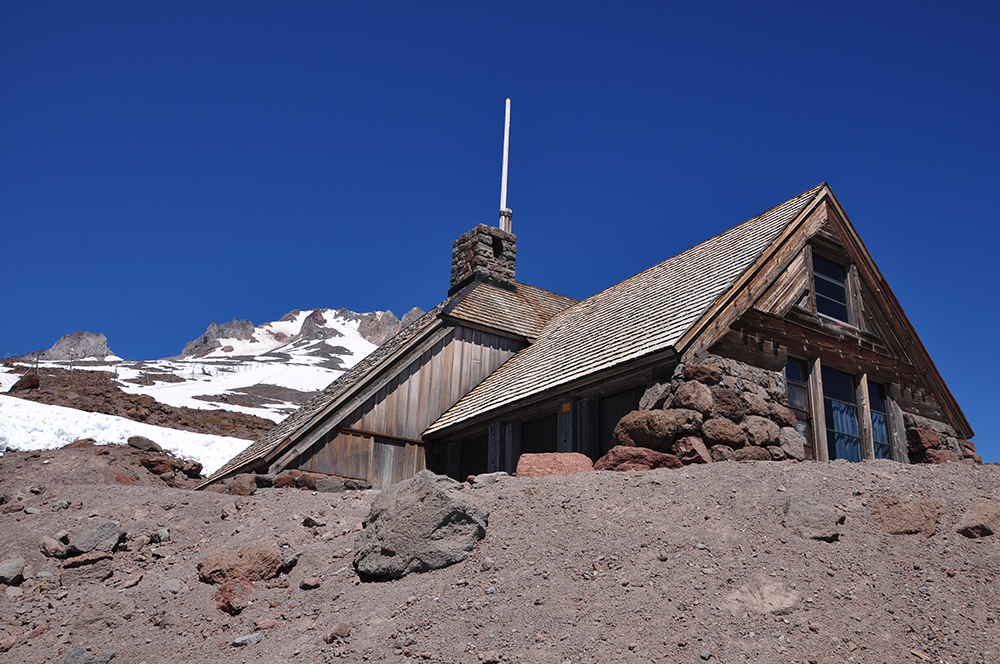
The upper terminal of the relocated Magic Mile lift can be seen in the background below.
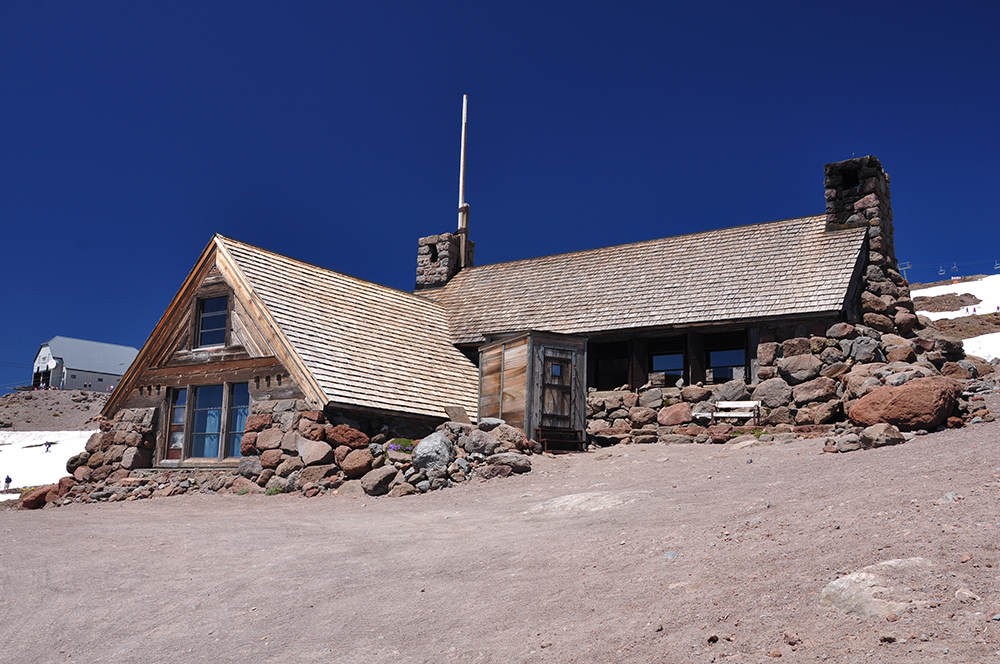
The door of the hut has an engraved sign on it.
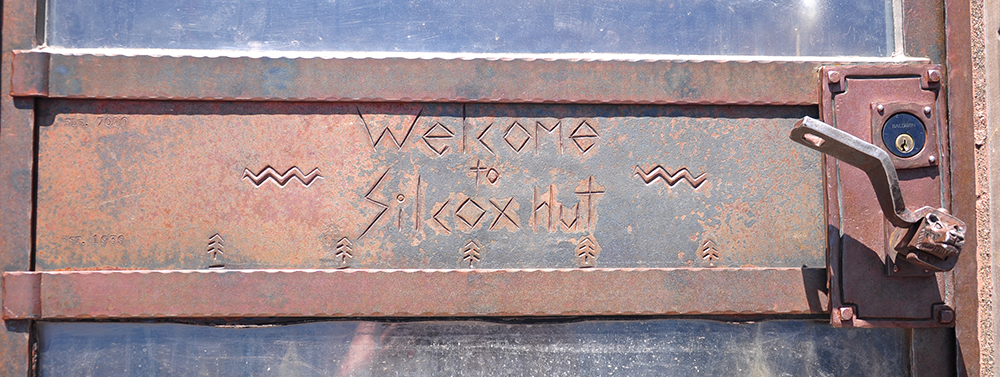
The concrete footings from the old Magic Mile lift are still visible between the lodge and the hut.
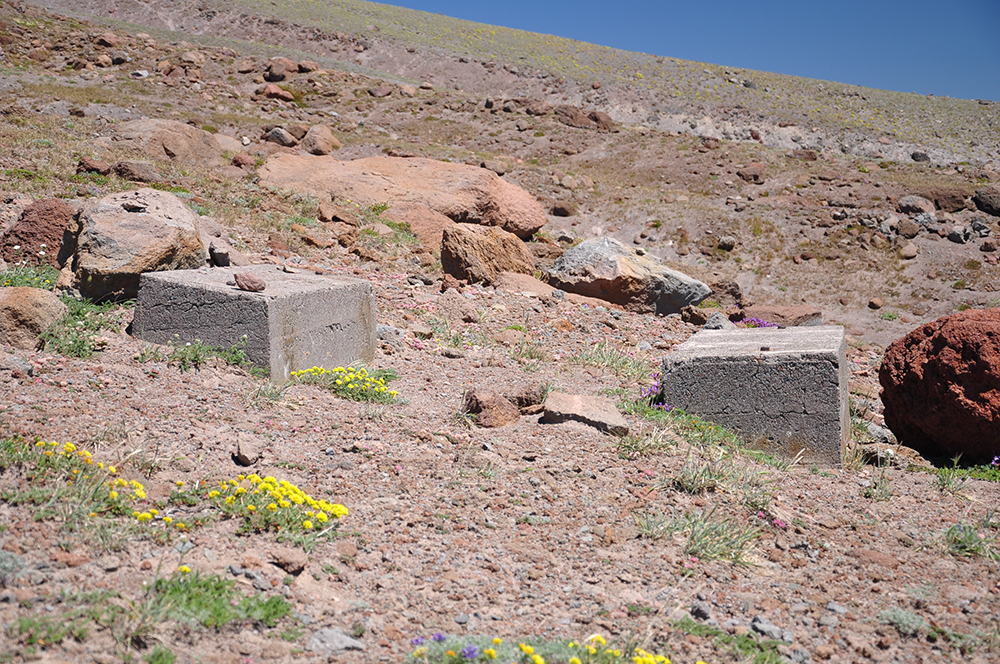
Location of Silcox Hut:
